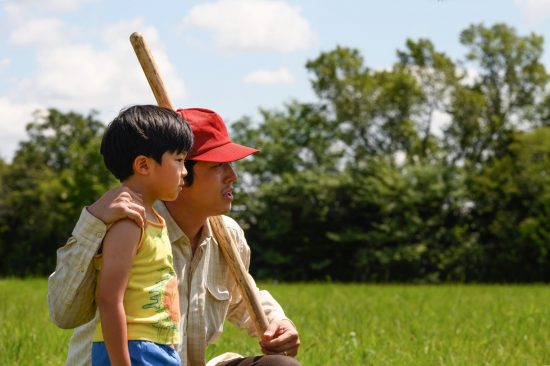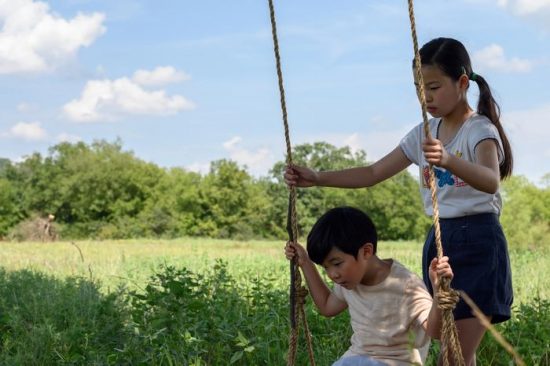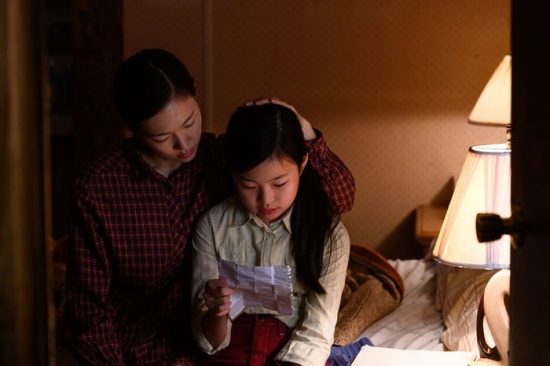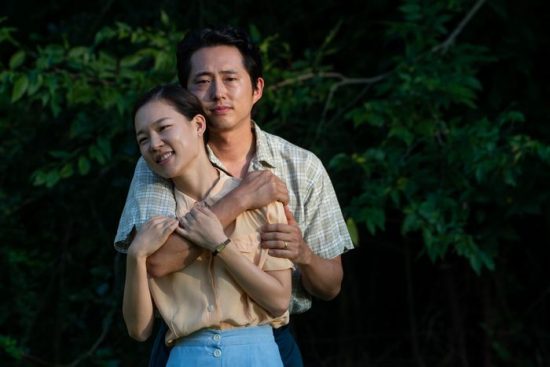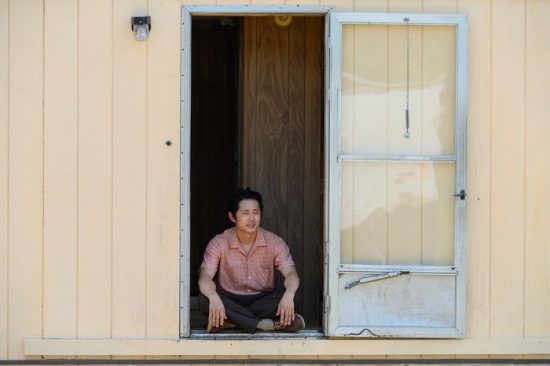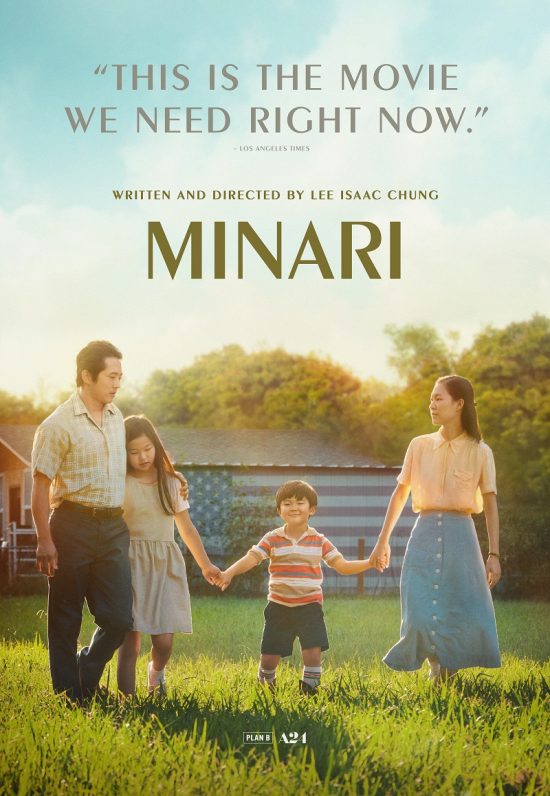Review: Minari – “Poetry made into motion picture”
Who doesn’t remember the wondrous and disorienting experience of waking up as a child in the backseat of their family car on a road trip, upon arrival to their destination? The opening sequence of Minari not only captures that feeling in uncanny fashion but immediately establishes a sense of nostalgia for simpler times when we were just along for the ride rather than being burdened with the responsibility of the driver’s seat.
From Lachlan Milne’s stunning cinematography to Emile Mosseri’s beautifully languid score, this is poetry made into motion picture: an epic saga of real-life whose earnest screenplay is vividly brought to life by an incredible cast of seasoned talent and breakthrough up-and-comers. It’s a shame that my first ever viewing had to be on a laptop instead of the silver screen where this heart-wrenching tale of a Korean family chasing the American dream rightfully belongs.
Filmmaker Lee Isaac Chung, on his fourth feature here, writes and directs with the graceful touch, experience and sensibility of an artist who has honed his craft to the point of being ready to tell such a personal story, even if the film is just loosely based on his own childhood as the son of Korean immigrants in 80s America. Yet, we feel the authenticity of what’s at stake from the start, as the Yi family arrives in Arkansas after leaving California in search of a better life.
Young patriarch Jacob (Steven Yeun) has purchased a small plot of land in the rural Ozarks but has omitted the details of his plan. His wife Monica (Yeri Han), steps out of the car in disbelief, asking: “what is this place?” upon seeing a big trailer parked before their eyes in the middle of nowhere. “Our home”, he replies, “we said we wanted a new start, this is it.” Monica’s reaction is only fair. This isn’t what she signed up for and she feels betrayed, despite her husband’s good intentions.
The main dramatic conflict of the movie is promptly laid before our eyes: Jacob, the risky dreamer, and Monica, the grounded one, the glue who holds the family together. Yet it’s not that simplistic because Mr Chung is a skilled storyteller who understands character development and has a lot of compassion for these people and we soon realise there’s more to them than those apparent personality barriers.
Back in California the Yis were working in the soul-crashing chicks-sexing industry and that’s what they keep doing in Arkansas as their main source of income, whilst on the side, Jacob focuses on developing their piece of land to grow Korean produce that they can hopefully sell to fellow Korean Americans. Starting your own business out of nothing is no walk in the park though, especially whilst raising two children and with the youngest one, David (Alan Kim), suffering from a heart condition that keeps the whole family in constant apprehension.
That’s why at some point Monica can no longer put the pressure of David’s care on their slightly older daughter Anne (Noel Kate Cho) and arranges for her mother, Soon-ja (Yuh-Jung Youn), to come all the way from South Korea so she can help with the children during the day. Although her support is much needed, the unexpected arrival of a grandma who’s never really been part of these children’s lives and barely speaks any English, shakes up the already precarious family dynamics but in time, whether consciously or not, she will get through to the kids and help the family towards the path to healing.
The vivacious David is not exactly over the moon about having to share his bedroom with the woman and in a memorable trailer moment he shamelessly tells Soon-ja that “she’s not a real grandma because she doesn’t bake cookies, she curses a lot, and she wears men’s underpants”. Veteran Korean actress Yuh-Jung Youn is a force to be reckoned with and her chemistry with outstanding young newcomer Alan Kim is the heart of the film, especially for their genuine portrayal of the generational and cultural gap that being raised in a foreign land by immigrant parents entails.
Minari however isn’t just the story of David and grandma Soon-ya’s blossoming friendship or of Jacob and Monica’s marriage in jeopardy. The film’s greatest achievement is the beauty of its simple yet nuanced storytelling that speaks a universal language. This a story about the true meaning of home and the resilient love that makes a family grow stronger through the testing hardships of life, as symbolised by Minari, the peppery Korean herb, which “comes in the pockets of immigrants, grows, dies in the first year, thrives in the second and purifies the water and soil around it”.
An unsentimental yet incredibly heart-warming cinematic piece, Minari triumphantly portrays the complex, multifaceted humanity that binds us all, in spite of our cultural differences. As directly illustrated by the talented writer/director: “the film comes down on the side of hoping for the best in each other. There’s so much more drawing us together as human beings than the superficial categories we have created.”
His words couldn’t ring any more true, especially after this challenging year on a global scale and particularly, in light of the current rise of despicably violent episodes of racist hate in America. That’s why Minari is essential viewing right now but it’s also one of the best films of the year, plain and simple. And a huge reason behind that is without a doubt the amazing work of its cast.
After his mesmerising (and criminally awards-snubbed) turn in 2018’s Burning, Steven Yeun cements his talent as one of the most incredible and versatile actors of our time by delivering such an emotionally subtle performance. His scene partner Yeri Han is equally heart-breaking and it’s too bad she wasn’t included in the Oscar love alongside him and the long overdue Yuh-Jung Youn. However, Minari is still going strong with 6 Academy Awards Nominations and you bet this household will be rooting for the Yis in a few weeks because, to quote grandma Soon-ja’s impromptu lullaby: “Minari, Minari, wonderful, wonderful…”
Minari is available on demand and virtual cinemas from April 2nd
In Drive-In cinemas from April 12th
In cinemas from May 17th
For more information on platforms and virtual cinemas visit Minari.Film

